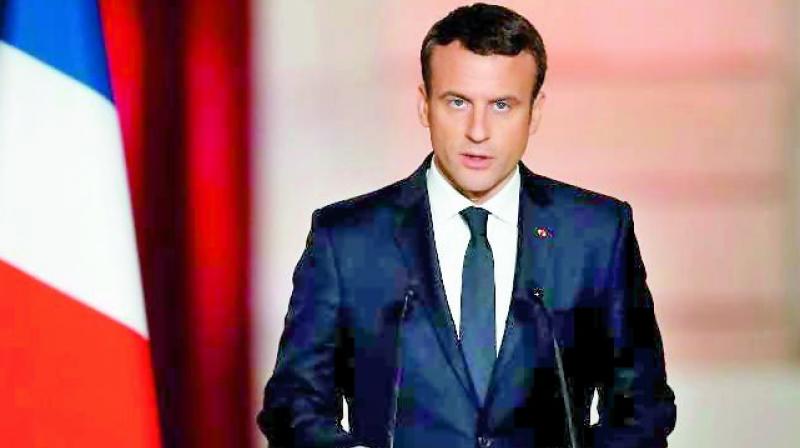French crisis: Emmanuel Macron hints at fuel tax rollback

Paris: French leader Emmanuel Macron faced growing pressure on Monday to find a way out of the worst crisis of his presidency after shocking scenes of rioting in Paris at the weekend.
As more than 100 people prepared to appear in court over the worst clashes in central Paris in decades on Saturday, Macron’s government was preparing its response.
Prime Minister Edouard Philippe, who cancelled a scheduled trip to Poland, was set to meet the heads of the main political parties, many of whom sense opportunities in Macron’s woes.
But the 40-year-old president appeared determined not to roll back the unpopular hikes in fuel tax which sparked the protests, or announce state handouts for poor families.
“Thinking that, as we have always done for 30 years, that you make a little symbolic gesture and then we sweep the dust under the carpet, that doesn’t resolve the fundamental, structural problem,” spokesman Benjamin Griveaux said on France Inter radio.
The protests erupted over fuel taxes but have since morphed into a wider wave of resistance to Macron’s economic reforms, with a third round of demonstrations called for Saturday in Paris.
Macron, a 40-year-old centrist, was elected in May 2017 on a pro-business platform that promised measures to incite companies to invest to create jobs.
Immediately after coming to power, he pushed through tax cuts for entrepreneurs and high-earners — policies that have become a lightning rod for anger among the so-called “gilets jaunes” or “yellow vests”.
Macron’s task now is also complicated by his own desire not to yield to France’s street protests, which in the past have repeatedly forced his predecessors into U-turns.
Jacline Mouraud, one of the protest movement’s prime instigators, said scrapping the fuel tax was a “prerequisite for any discussion” with the government. After his meeting political rivals on Monday, Prime Minister Philippe is set to hold talks with representatives of the “yellow vests” on Tuesday. He would then announce “measures” aimed at taking the heat out of the protests, his office said.
“Mr President, we need a response,” demanded the front-page headline of Le Parisien newspaper on Monday. “Swamped” read the headline of left-leaning Liberation newspaper which said the government seemed “paralysed by the yellow vest movement that it can't stop and that risks boiling over”.
Amid criticism of policing methods on Saturday that saw dozens of cars torched and shops vandalised, the government ruled out imposing a state of emergency which had been mooted. Deputy interior minister Laurent Nunez said that emergency measures were “one option among others,” but he said it was “not on the table for now”.
Economy Minister Bruno Le Maire said that solution for tackling low purchasing power for struggling families lay in reducing the tax burden in France, which is among the highest in Europe.
“We must speed up the reduction of taxes,” he said. “But for that we must speed up the decrease in public spending.”
Macron, a former investment banker, was booed on Sunday by onlookers while surveying the damage caused during the rioting.

